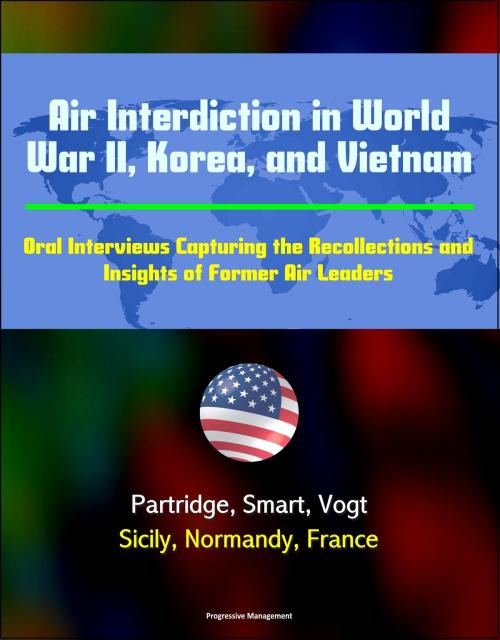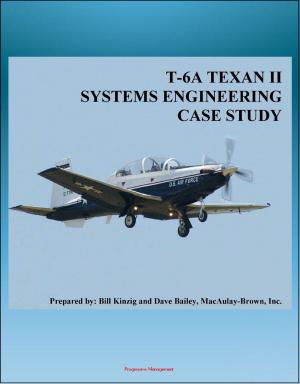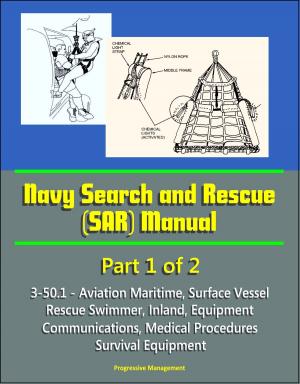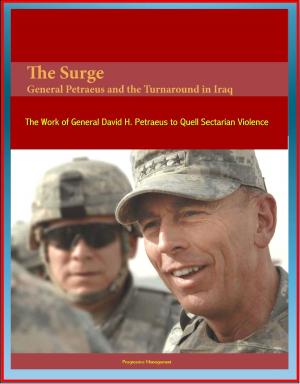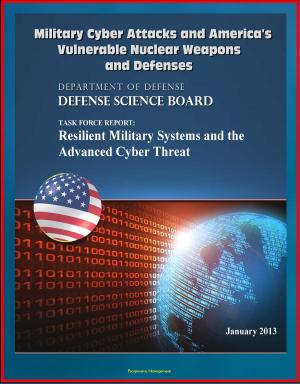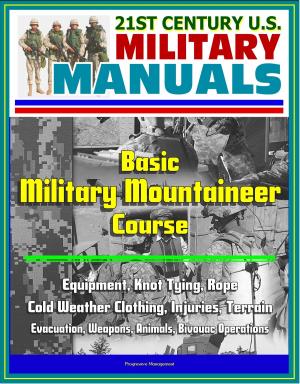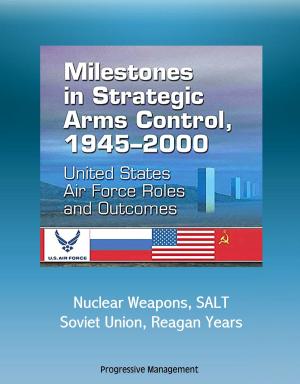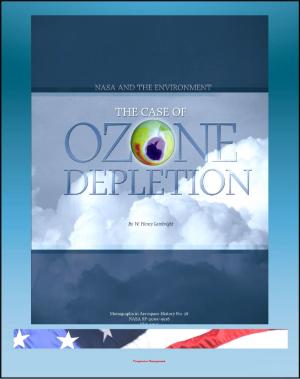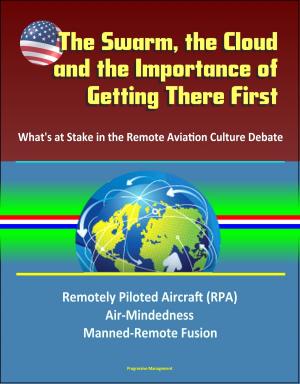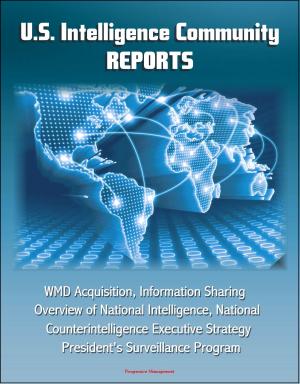Air Interdiction in World War II, Korea, and Vietnam: Oral Interviews Capturing the Recollections and Insights of Former Air Leaders - Partridge, Smart, Vogt, Sicily, Normandy, France
Nonfiction, History, Military, Aviation, World War II| Author: | Progressive Management | ISBN: | 9781310807473 |
| Publisher: | Progressive Management | Publication: | November 6, 2014 |
| Imprint: | Smashwords Edition | Language: | English |
| Author: | Progressive Management |
| ISBN: | 9781310807473 |
| Publisher: | Progressive Management |
| Publication: | November 6, 2014 |
| Imprint: | Smashwords Edition |
| Language: | English |
The publication of Air Interdiction in World War II, Korea, and Vietnam is part of a continuing series of historical studies from the Office of Air Force History in support of Project Warrior.
This book is the second of a series of group oral interviews focused on major areas of U.S. Air Force operations in the past. Begun in 1981 at the suggestion of Lt. Gen. Hans H. Driessnack, the Assistant Vice Chief of Staff, these interviews attempt to capture the recollections and insights of those former air leaders who shaped the history of the Air Force. General Driessnack thought that if senior retired officers would participate in historical discussions in small groups they might together recall incidents and experiences that might otherwise go unrecorded. In the course of remembering they might elicit from each other information that would be of interest to the Air Force today.
Interviews were conducted on June 17, 1983. On that occasion the topic was air interdiction: how it had been defined, planned, and executed in World War II, Korea, and Vietnam. The participants—Gen. Earle E. "Pat" Partridge, Gen. Jacob E. Smart, and Gen. John W. Vogt— met at Boiling Air Force Base and for more than three hours related their war experiences, first as young pilots, then as mid-level staff officers, and later as air commanders. Together they reflected on the purposes and objectives of air interdiction. Their recollections and insights ranged from pre-World War II tactical air doctrine to air campaigns in North Africa, Sicily, Italy, Normandy, and Northern France in World War II, to air interdiction campaigns in Korea, and finally, to more recent examples in Vietnam. Throughout their discussions certain issues recurred: coordinating air with ground and sea forces; allocating aircraft to different air combat missions; collecting and interpreting intelligence; planning and targeting air interdiction missions; and applying air power within a framework of political constraints. Each of these issues is discussed through the lens of personal recollection: a single individual remembering an air battle or campaign at a fixed moment in the past. Consequently, readers should treat this collective oral interview not as history, but as the source material upon which history rests. This book is a collective memoir, elicited by historians from air commanders who flew, fought, and commanded air forces in three wars.
Project Warrior seeks to create and maintain within the Air Force an environment where Air Force people at all levels can learn from the past and apply the warfighting experiences of past generations to the present. When General Lew Allen, Jr., initiated the project in 1982, he called for the "continuing study of military history, combat leadership, the principles of war and, particularly, the applications of air power." All of us in the Air Force community can benefit from such study and reflection. The challenges of today and the future demand no less.
The publication of Air Interdiction in World War II, Korea, and Vietnam is part of a continuing series of historical studies from the Office of Air Force History in support of Project Warrior.
This book is the second of a series of group oral interviews focused on major areas of U.S. Air Force operations in the past. Begun in 1981 at the suggestion of Lt. Gen. Hans H. Driessnack, the Assistant Vice Chief of Staff, these interviews attempt to capture the recollections and insights of those former air leaders who shaped the history of the Air Force. General Driessnack thought that if senior retired officers would participate in historical discussions in small groups they might together recall incidents and experiences that might otherwise go unrecorded. In the course of remembering they might elicit from each other information that would be of interest to the Air Force today.
Interviews were conducted on June 17, 1983. On that occasion the topic was air interdiction: how it had been defined, planned, and executed in World War II, Korea, and Vietnam. The participants—Gen. Earle E. "Pat" Partridge, Gen. Jacob E. Smart, and Gen. John W. Vogt— met at Boiling Air Force Base and for more than three hours related their war experiences, first as young pilots, then as mid-level staff officers, and later as air commanders. Together they reflected on the purposes and objectives of air interdiction. Their recollections and insights ranged from pre-World War II tactical air doctrine to air campaigns in North Africa, Sicily, Italy, Normandy, and Northern France in World War II, to air interdiction campaigns in Korea, and finally, to more recent examples in Vietnam. Throughout their discussions certain issues recurred: coordinating air with ground and sea forces; allocating aircraft to different air combat missions; collecting and interpreting intelligence; planning and targeting air interdiction missions; and applying air power within a framework of political constraints. Each of these issues is discussed through the lens of personal recollection: a single individual remembering an air battle or campaign at a fixed moment in the past. Consequently, readers should treat this collective oral interview not as history, but as the source material upon which history rests. This book is a collective memoir, elicited by historians from air commanders who flew, fought, and commanded air forces in three wars.
Project Warrior seeks to create and maintain within the Air Force an environment where Air Force people at all levels can learn from the past and apply the warfighting experiences of past generations to the present. When General Lew Allen, Jr., initiated the project in 1982, he called for the "continuing study of military history, combat leadership, the principles of war and, particularly, the applications of air power." All of us in the Air Force community can benefit from such study and reflection. The challenges of today and the future demand no less.
